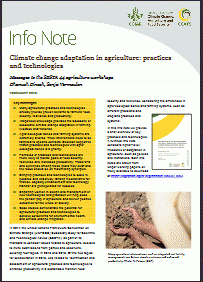Limiting global warming to the 2°C target that countries have committed to in the 2015 Paris Agreement, and reaching the Sustainable Development Goals by 2030, will require large-scale expansion of climate-resilient approaches in agriculture and food systems. In order to achieve the scale of change required, coordinated action is needed from global to local levels, from research to policy and investment, and across private, public, and civil society sectors. But at the same time, differential approaches are needed to address gender equality and women's concerns in climate-resilient agriculture. This article sets out a conceptual framework for scaling up climate resilient agriculture (CRA) approaches that are gender and socially inclusive by taking into account these constraints and inequalities across wider areas and different aspects of CRA. It builds on gender and climate-resilient agriculture research and project experience to argue that the additional integration of women's empowerment approaches and dimensions into this scaling framework provides the opportunity to promote gender equality while scaling up. It also identifies gaps and areas for further analysis and research. The intention is to identify potential pathways for developing a gender- and socially-inclusive set of options and strategies, in four key dimensions: climate resilient technologies and practices; climate information services that reach under-reached groups; inclusive finance mechanisms; and promoting leadership in decision-making. Copyright © 2021 Huyer, Simelton, Chanana, Mulema and Marty.
DOI:
https://doi.org/10.3389/fclim.2021.718240
Altmetric score:
Dimensions Citation Count:
























